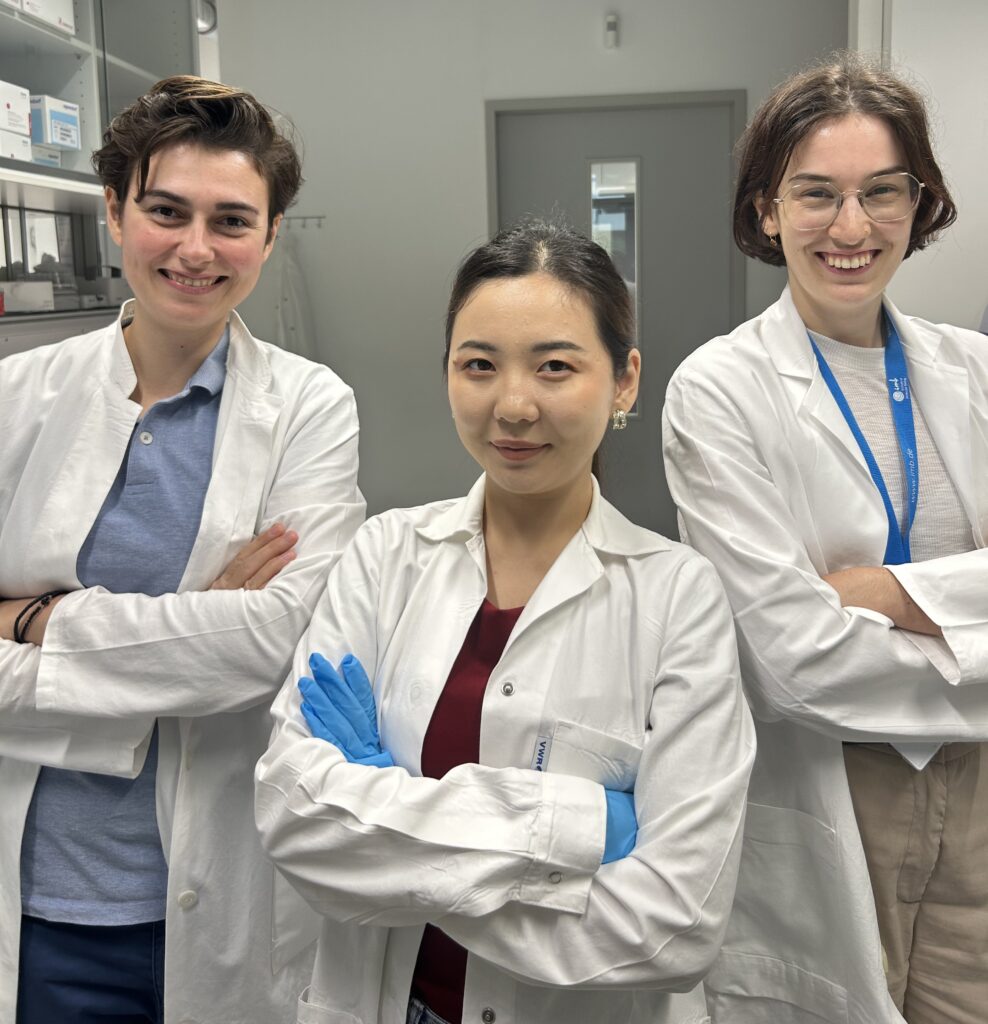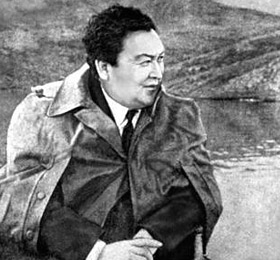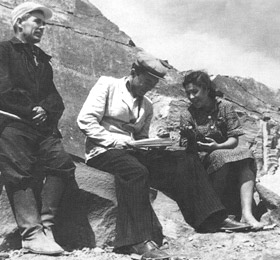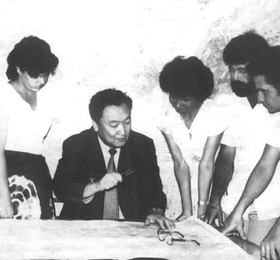Aruzhan Anuarbekova
Specialization: Molecular Medicine. Internship: Papathanasiou Lab, Germany.
 How to win funding and complete a research internship at one of the world’s best laboratories at age 23? The answer to this question is in an interview with Aruzhan, a Master’s student at the School of Medicine. A year ago the girl from Mangystau region was among the 142 participants selected to compete in the research internship competition. Not only did Aruzhan submit an application, but she also prepared well for the competition and won a grant from the Yessenov Foundation. The young scientist completed her internship at the laboratory in Mainz, Germany.
How to win funding and complete a research internship at one of the world’s best laboratories at age 23? The answer to this question is in an interview with Aruzhan, a Master’s student at the School of Medicine. A year ago the girl from Mangystau region was among the 142 participants selected to compete in the research internship competition. Not only did Aruzhan submit an application, but she also prepared well for the competition and won a grant from the Yessenov Foundation. The young scientist completed her internship at the laboratory in Mainz, Germany.
How and why did you choose this specialization?
I have always been interested in human biology and genetics, especially in the role of DNA. However, I did not want to become a doctor since I am an emotional person, and I did not know how patients could affect my psychological health. So I found a solution. I decided to carry out laboratory researches which are part of medicine. What happened next proved that I made the right choice.
How was the Yessenov Foundation internship grant competition held?
It was quite interesting. I expected that they would evaluate my understanding of Molecular Biology, but the tasks and questions were fairly different. I especially remember the interview with a psychologist – it was my first such experience. Later I understood why such tasks were needed to select the winners. I eagerly awaited the results, having no idea what they might be.
What advice can you give to those who apply this year?
You have to start searching for a laboratory beforehand, and while choosing it consider as many factors as possible. Don’t worry about the options – there will always be something suitable. Your task is to find the best one. Here’s what to focus on. Find out if the laboratory has funding for current research. Undertake a review of recent publications of its scientists: what are their achievements and what are they currently working on. Discuss with the laboratory in advance what exactly will you do: real experiments or just routine tasks. Find out how HR supports the employees at the lab since you will need help with paperwork. There are a lot of such criteria. If you have any questions, please don’t hesitate to contact me, I will always answer and help you.
How and where did you take your internship?
I took internship at the laboratory of Dr. Stamatis Papathanasiou at the Institute of Molecular Biology (IMB), Mainz, Germany. It is a modern and well-equipped institute. My supervisor and team were just wonderful. I was very lucky to join them. They supported me, always helped and created a positive atmosphere. My colleagues even organized welcoming and farewell parties for me. They gave me an opportunity to work independently and implement my ideas. They also allocated funds for my research, including for plasmids’ research which I conducted. My project supervisor was Dr. Ruxandra Lambuta, who trained me and explained how to work in the laboratory. It was actually an individual training.
What is the essence of your research?
I will try to explain it in simple terms. There is a huge number of cells in the human body, and they are constantly dividing. During this process mistakes occur sometimes. For example, some parts of our chromosomes “decide” to build their own “house” and form a separate nucleus, which we call a micronucleus. The genes in these chromosomes cannot perform their function normally. Imagine that a very important gene, for example, p53 – the main protector of our body from cancer – accidentally gets into such a micronucleus. What will happen to the cell and the body if p53 cannot do its job? I studied this very problem.
What did you achieve during your three month internship?
I got a lot of experience there and learned several important lessons. First, it is important to believe in yourself and your abilities. Work abroad and my colleagues’ praise helped me believe in myself. It was especially nice to receive a job invitation from the laboratory to work there after completing my master’s degree. I realized that lab skills are, of course, important, but the ability to analyze and generate ideas is much more essential. As my research advisor said, it is not that difficult to master lab methods and get the hang of it, the key to scientific success is development of critical thinking and creativity. Speaking about problems, perhaps I should mention the city itself. I lived and worked in a small town in Germany, where there was no entertainment. And here’s another life hack for you: while choosing a place for a long stay, learn more about the city itself, its atmosphere and recreational opportunities. Mainz is clearly not the place for the latter.:)
What are your personal interests?
Until recently, I was a member of the student theatrical and creative organization “Kazakh Stage”. I really love theatre’s mood and atmosphere, its productions. I took part in some performances. However, I decided to focus on something else but I still haven’t found what I’m looking for. In my free time I like to read books, write and watch Korean drama series (doramas) because they give a special cool vibe. I am not into sports, but I do stretching and try to walk more.
Where do you live now, what are you doing, and what are your plans for the future?
I am completing my master’s degree in Astana. I am currently writing a literature review for my project and will soon begin its lab part. I will study the possibilities of improvement of cancer cells’ response to chemotherapy using genetic manipulations, and I hope for a good result. I work together with Dr. Marina Kryazhevskaya who is my scientific supervisor. After graduating from the university I will continue my studies and work, gaining experience in my scientific field.
22.11.24, Stories
Seen by: 1,005





